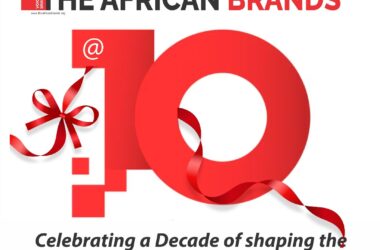MediaConsortium, a network of three industry analysts – Adetunji Faleye of Brand Impact, Godwin Anyebe of Consumer Assembly and Amechi Obiakpu of EspiNews take a look at the workability of Advertising Industry Standard of Practice (AISOP) unveiled last year by the Advertising Practitioners Council of Nigeria.
The Advertising Practitioners Council of Nigeria (APCON) had sometimes last year unveiled a fresh Advertising Industry Standard of Practice (AISOP). The essence of the new policy and reforms according to the institution is to strengthen professionalism within the Nigerian integrated marketing communications landscape.
The document also seeks to improve mutual respect, eradicate unfair advantage, unethical competition, and unequitable policies between relevant stakeholders in the advertising and marketing communications industry in Nigeria.
Some of the provisions in the document include a minimum of payment term at 45 days for advertising business. Any payment made outside the stipulated 45 days will attract interest payment at prevailing Central Bank of Nigeria, CBN rate. The document also allowed media houses to increase their rates unilaterally but they need to give 30 days notice.
In fact, APCON Registrar, Dr. Lekan Fadolapo, said the development became necessary, following the approval of the Honourable Minister of Information and Culture, Alhaji Lai Muhammed, for APCON to develop an equitable and acceptable frame work in line with the Federal Government’s reformative plans aimed at accelerating the pace of economic recovery post pandemic era.
According to him, AISOP was specifically set up to provide the regulatory framework in all critical areas of concern for the stakeholders in areas such as engagement policy, payment terms and conditions, numeration model, media rates and commissions, disengagement protocols, credit policy, return of advertisement and measurement, peaceful resolution and other regulatory industry protocols.
Reactions
Expectedly, there have been mix reactions on the workability of the document after APCON unveiling AISOP. While many considered the development as a good approach to solving a lasting agency and client dispute, others considered it a document that, to a large extend favours the agencies over others.
For example, the Advertisers Association of Nigeria (ADVAN) viewed the development as repugnant to natural justice, equity and good conscience. In fact, the body of advertisers issued a statement that Supreme Court had in many decisions, pronounced that the rationale for freedom of contract is founded on public policy: i.e., parties of full age and competent understanding are deemed to have the utmost liberty of contracting, and that their contracts, when entered freely and voluntarily, must be held sacred and be enforced by courts of law.
Also, ADVAN believed that, the document does not protect the collective interest of both clients and agencies. Instead, the group claimed that, the reform favours a certain block over others thereby creating a toxic business atmosphere.
Speaking on this development, President of the Association of Advertising Agencies of Nigeria (AAAN), Steve Babaeko, said that he can now heave a sigh of relief, adding that it is long overdue. “It is a good one coming from APCON; I think it is long overdue.
“as the president of AAAN, these are some of the things that keep me awake, where members complain on some of these issues that the law has tackled. I am looking forward to the enforcement and execution of the laws.” He added.
On his part, Chairman, Broadcasting Organisation of Nigeria (BON), Mr John Ugbe called for a holistic approach towards addressing various challenges militating against revenue generation and growth of the media and advertising industry in Nigeria.
He said: “One of the things I put out as part of what I wanted to do was to grow the industry. I think the industry cannot grow without advertising.
“Being an advertiser, I see another problem, I think some reaction to some of the policies you tried to put in place, shows that the problem has to be tackled from different perspectives.” He noted.
He pointed out, “I think if these policies are well implemented, it will be very helpful to all the media organizations. So, the entire ecosystem will really benefit from it. We also think it’s important to get to good standard measurements. We know that in an attempt at fixing this, but we also know there have been several conversations from members of BON, because we think the problem is not yet well addressed.
Also speaking on this development, Group Managing Director of COSSE, Funmi Onabolu said, for so many years, the industry had operated without a code of conduct, which navigates issues, it was in that spirit a committee on AISOP which he chaired was put together represented by every major stakeholder in Nigeria.
He said, “at the end of the day, the committee came up with a document, which aligns with the best practices in most parts of the world, which will make every stakeholder not to be subjected to unfair business practices.”
According to him, “The fundamental principle is to ensure we do not encourage or continue to operate in an environment that is like a jungle or an environment that many of the stakeholders feel they are not experiencing any growth.”
Onabolu expressed optimism that, with the AISOP document, anyone, who is aggrieved, can report, starting from his or her sector, and if not satisfied within 30 days can move the case to APCON.
Examples from other climes
It’s worthy of note that, all over the world, every country that wants to stand tall among its contemporaries must have a document like AISOP. For instance, advertising in South Africa is largely a matter of self-regulation, which is regulated by the Advertising Regulatory Board (ARB), a non-profit organisation established by advertising and marketing stakeholders, including the Marketing Association of South Africa, the Association of Communication and Advertising and the Internet Advertising Bureau.
The ARB regulates advertising in South Africa in accordance with the Code of Advertising Practice (the Code), which prescribes the advertising standards that must be followed by advertisers in South Africa. The ARB performs the self-regulatory function previously performed by the now liquidated Advertising Standards Authority of South Africa (ASA), and has done so since 2018.
In Kenya, immediately after lockdown, some big multinationals came together and said they are not doing fourty five days before payment for advert again, they want to do thirty days because, according to them, people involved in the value chain need to be supported to survive.
Also, in South Africa, after lockdown, some big multinationals said they were not interested in fourty five days again, they want to start doing thirty days. In Nigeria, BON said they want prepayment at least 40% before advert exposure afterwhich balance will be paid after campaign.
Findings by MediaConsurtium, an amalgam of Brand and Marketing Analysts revealed that, annual projected revenue for the Nigerian advertising industry is about hundred billion naira, and what only goes to the agency is about 20%, the remaining 80% will go to the media either broadcast, print, out of home or new media.
APCON’s argument
Speaking to MediaConsurtium on this development, APCON Registrar, Dr. Lekan Fadalopo, said APCON agreed to strike a balance using best global practice in such a way that it will not hurt or destabilize the system and so everyone keyed into it and a committee was set up to that effect.
Fadolapo further disclosed that, the committee proposed a sixty days for payment, noting that they don’t have a governing body and there is no vacuum in government and when they get to policy issue they needed to run to the minster.
He stressed that, “we had to present to the minister and mind you they themselves have to check what we are doing visi-a-vis what the law says so that we don’t issue a contradictory law.
“what we have done is in line with global best business practice, even if you go to international law, they will tell you that, where the local law conflicts with international law, the local law prevails. That is why you will not see anybody going to Saudi Arabia to advertise what’s against their local law.” He added
“So, when we went to the ministry, they showed us a portion of the NBC law which stipulates fourty five days and we reverted back to the practitioners on the issues,” he dsclosed.
According to him, in some markets, the period for advert payment is not up to fourty days. In fact, in the UK, it is thirty days. Even the countries that do fourty five days, the date starts counting from when the campaign start to run and not the day an invoiced was issued. Nigerians go to buy media from the same market and play by the rules, but they find it difficult to obey local laws.
He further disclosed, “the same multinationals advertise on CNN and prepaid in dollars, yet they will come to Nigeria and tell you that they will give you 120 days which is four months. And you will bill them and then be expected to wait for four months and you know that the survival of any media house is dependent on advertising.
“If as a regulator, we decided to fold our arms and allow all this to continue, the future of the industry will be damaged, and that’s the truth. We have a case where a multinational is owing an agency 420 milion naira, instead of terminating that contract legally, the client abandoned that agency and the debt to start another business with a new one and we said no.” He noted.
The registrar stated that, if anybody is fighting against AISOP such person should come and tell us why. The simple highlight of AISOP is; don’t tell media how much they can charge because you are an advertisers. You cannot do that to CNN, BBC, Aljazeera etc, why are you doing that in Nigeria?”
He added that, one of the ways APCON has adopted to deepen this conversation is to organize road show to create awareness on AISOP, and that’s starting by first week in April.
Experts’ opinions
Despite the discordant tunes emanating from this development, analysts considered it necessary for stakeholders to come together and iron out their differences so as to be on the same page for the sake of business growth and development in the country.
For instance, the Managing Partner, GEE Law Firm, Nosakhare Uwadiae, said; “the introduction of AISOP by APCON to tackle long standing business discrepancies between agencies and clients is fundamental to the growth of the sector.”
He however, raised a concern on how would AISOP deal with agency that collect money from client and fail to pay a media house as and when due, adding that, he also expect AISOP to factor in situations such as, what happens when agencies failed to meet with key performance indicator measurements.
Uwadiae disclosed that, AISOP is a blessing in disguise, noting that most of the contracts that agencies signed are unfair to them, and they sign such contracts because they lack bargaining power. He however, admonished agencies to reject signing contracts that are complex in nature.
Another issue raised by the lawyer is that, there are processes to follow in an agency and client agreement, but most agencies don’t care to know the depth of such agreement.
While reacting to how stakeholders will be on the same page, he said kicking against the document will not help the industry. Therefore, it’s important that all parties come together and review the document in every three years to make the document more dependable and workable.
Other industry watchers are of the opinion that APCON should further hold discussions with Heads of Advertising Sectoral Group (HASG) which comprises, Media Independent Practitioners Association of Nigeria (MIPAN), Association of Advertising Agencies of Nigeria (AAAN), Outdoor Advertising Association of Nigeria (OAAN), and Experiential Marketers Association of Nigeria (EXMAN) on one side, and Advertisers Association of Nigeria (ADVAN) on the other.
According to them, the proposed discussions will create a common ground between HASG, ADVAN and other aggrieved parties to look into the workability of AISOP in order to create a level playing field for all stakeholders in the county’s advertising ecosystem.









